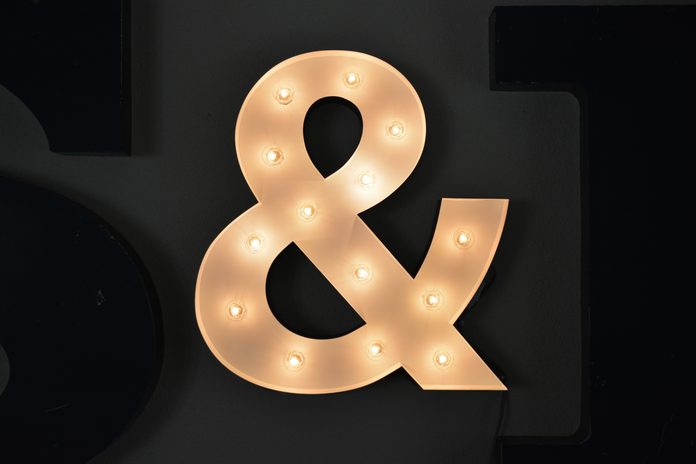As midterms approach, many students are preparing for their first essays of the semester. By college, you should be able to write an effective essay, but we often make the same grammatical and spelling mistakes over and over again. I have no doubt you can use two/too/to and there/they’re/their correctly by now, but here are some more advanced common grammatical and spelling errors that make you look silly, both in your writing and speaking. Master them, and you are that much closer to an A+!
Note: All of these definitions are my re-wordings of dictionaries and grammars. All examples are my own and are examples of pop culture because that is fun and grammar is otherwise quite dull.
-
Then/Than: Although a common error in writing, this is a very grammar problem to solve. “Then” indicates time and sequence. Ex: “I liked Britney Spears, then I liked Beyonce.” Britney was a solo artist first, so I liked Britney first. Later, when Beyonce went solo and became Queen B, I liked Beyonce also. “Than” is used for comparing two things together and indicates preference. Ex: “I am better at singing ‘Lucky’ than ‘Halo.’” When comparing these ballad-like songs, I like to sing along with Beyonce’s song, but I sing Britney’s song better.
-
Who/Whom: Both these pronouns are different cases. A quick trick to tell which pronoun belongs in your sentence is to try replacing it with he/she or him/her.“Who” is subjective, like “he,” “she,” and “they,” and is used when the pronoun acts as the subject of a clause. Ex: “I have a brother who likes soccer.” “Who loves you?” “Whom” is an objective pronoun, like “him,” “her,” and “them,” and is used as the object of a clause. Ex: “I have a brother, with whom I like to watch soccer.” “Whom do you love?”
-
Accept/Except: You should never mix these two up again after this short lesson. “Accept” is a verb, meaning to agree, to admit, or to receive. Ex: “Mary Jane Watson accepted Peter Parker’s hand in marriage.” Spider-Man proposed (fun fact) three times to his epic love MJ before she agreed to marry him. “Except” means “all but” or “other than.” Ex: “Everyone was invited to MJ’s wedding, except the Green Goblin.” Naturally, Spider-Man would not want one of his greatest enemies at his wedding, so all but the Green Goblin were invited.
-
Which/That: This is one of the most common mistakes in advanced writing, so pay attention! “That” is a restrictive clause, meaning you can refer to only what is within the phrase. Ex: “The house that has a red door is mine.” This phrase, because it uses the restrictive “that,” is true only if no other house has a red door. If any other houses have red doors, then the sentence is incorrect, unless you own all the houses with red doors. “Which” is nonrestrictive, meaning you are using it to add specificity but there are other facts that go along with it. Ex: “The house, which has a red door, is mine.” This is less restrictive. We are discussing your house and it has a red door, but there are possible other houses with red doors.
-
Me/I/Myself: We were taught in elementary school that to choose between “I” and “Me,” you should test both in a sentence and choose the one that sounds the least silly. Remember that when talking about yourself, always put yourself at the end of the phrase, like you are the hostess and the other people in the sentence are your guests. Ex: “Sally and I like ‘Twilight.’” “I like ‘Twilight,’ so all my friends make fun of Sally and me.” “Myself” is a reflexive pronoun. The trick Quick & Dirty Tips recommends for using “myself” is to pretend you are looking in a mirror: You would say, “I see myself in the mirror.” Ex: “I am going to treat myself to a ‘Twilight’ movie marathon, even though I know that is a bad life decision.”
-
Nauseous/Nausea/Nauseated: All three are unpleasant. Let’s break it down. “Nausea” is a feeling of having an urge to vomit, feeling queasy, feeling sick to your stomach. Ex: “I have nausea after watching ‘The Ring’ and want to vomit.” “Nauseated” means you have the feeling of nausea and feel disgusted. Ex: “I am nauseated after watching that horse commit suicide off a cliff and I think I am going to vomit.” “Nauseous” or “nauseating” means something has the effect to create nausea in others and causing disgust. Ex: “That little girl coming out of the television is nauseating. I think I am going to vomit.” Unpleasant, indeed.
-
Punctuation goes inside the quotation marks. “Always?” you ask. “Every single time.” It is that simple.
-
Nor: This conjunction presents a non-contrasting negative idea. The term “nor” means “and not” and typically follows “neither.” Ex: “Neither my grandmother nor Miley Cyrus are good at twerking.” Broken down, this sentence means “My grandmother is bad at twerking. Miley is also bad at twerking.” Occasionally, “nor” does not follow “neither.” In this case, if the first verb of the phrase is negative, then “nor” follows as a union between two nouns. Ex: “My grandmother shouldn’t twerk, nor should Miley.”
-
Only: The easiest way to remember how to use this is to put “only” closest to what you are limiting. If Gretchen Weiners says, “We only wear jeans or track pants on Fridays,” that means that Cady, Karen, and Regina can wear only jeans or track pants. They cannot wear a skirt, a shirt, a dress, shoes, or an ugly vest on Fridays. Only jeans and track pants. However, if Gretchen had said, “We wear jeans or track pants only on Fridays,” that means that the only day Cady could wear jeans or track pants during the week is on Fridays. You can wear other clothes on Friday if you prefer, but you cannot wear those two items on other days of the week.
-
Hung/Hanged: This is very simple. Curtains are hung. Criminals and pirates are hanged. Criminals are not often disguised as curtains. Curtains make poor criminals. Simple.
-
Comprised of. This term is a mash-up of the phrases “composed of” and “comprised.” Comprise means to contain and explains that a greater whole is made up of smaller parts. When using it in a sentence, the greater or more complete element goes first in the sentence. Ex: “The United States comprises 50 states, such as Virginia.” The states make up the parts of America, so the country goes first in the sentence. Compose means to make up and is used similarly, but puts an emphasis on the smaller parts that make up the whole. Ex: “Virginia is one of the states that composes the USA” or “Our nation is composed of 48 contiguous states.” In conclusion: the parts compose the whole, but the whole comprises the parts.
-
Irony: If you think that Alanis Morisette’s ode to irony is a decent representation of this beautiful, subtly humorous, and layered word, you are wrong. Let us inspect a few lines of the song. There is nothing ironic about finding a fly in your chardonnay. That is just bad luck. A traffic jam when you’re already late? A no-smoking sign on your cigarette break? Bad luck. Also smoking is bad for you. But when a man who is afraid of flying finally musters the courage to get on an airplane and it crashes on his first flight, confirming all his fears? That is ironic. Irony is the use of words or a situation that is strange or humorous because things happen in a way that seems to be the opposite of what you expected. The important thing is to remember that it is the opposite, not different, outcome that makes the situation ironic.
-
Farther/Further: Again, these are totally different words and should never be confused. “Farther” usually refers to a measurable distance, usually physical. Ex: “Forrest Gump can run 5 miles quickly, but I can run a mile farther.” This is, of course, a ridiculous statement because we are discussing a man who landed a football scholarship for his sprinting and ran across the United States three times. “Further” refers to lengths that are not easily measurable, such as time. Ex: “Forrest collapsed on the sidewalk and I could see the finish line further down the road.” We do not know how much distance was left until the finish line. Therefore, the ambiguous “further” is used.
-
Affect/Effect: Again, these two words are different parts of speech. “Affect” is usually a verb, meaning one noun will cause an outcome in another noun, either through a physical act or influence. “Effect” is most often a noun, meaning a result or an outcome. So, when something is affected, it often causes an effect. Ex: The car crash affected Mary’s shoulder. The car crash had an effect on Mary’s softball pitch.
-
Empathy/Sympathy: These are very similar words and I often find myself looking them up to confirm their meanings. “Empathy” is an understanding of what another person feels because you have experienced that feeling for yourself or have been in a similar situation. Ex: “I empathized with Daenerys Targaryen’s frustration when her dragons were stolen; I felt the same way when my dog was lost.” I empathize with the Khaleesi because I understand her emotional distress. “Sympathy” is an acknowledgment of another person’s emotions and an attempt to provide comfort. Ex: “I sympathize with Sansa Stark’s situation after her father was beheaded.” I cannot understand poor Sansa’s situation entirely: my father has never been beheaded, I have never been held prisoner, and I have never been engaged to a monstrous king or his imp uncle. I feel bad for Sansa but cannot recognize my own pains.

